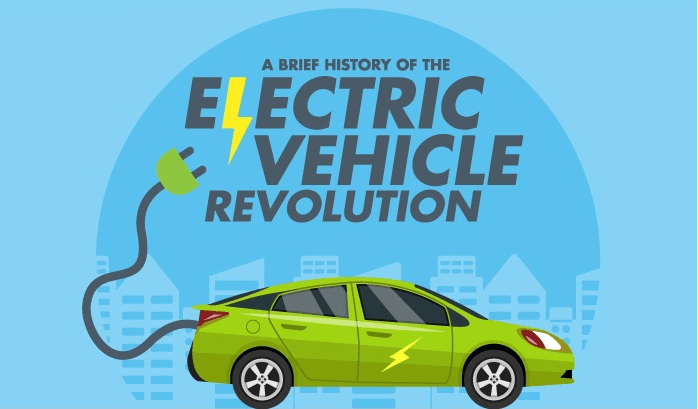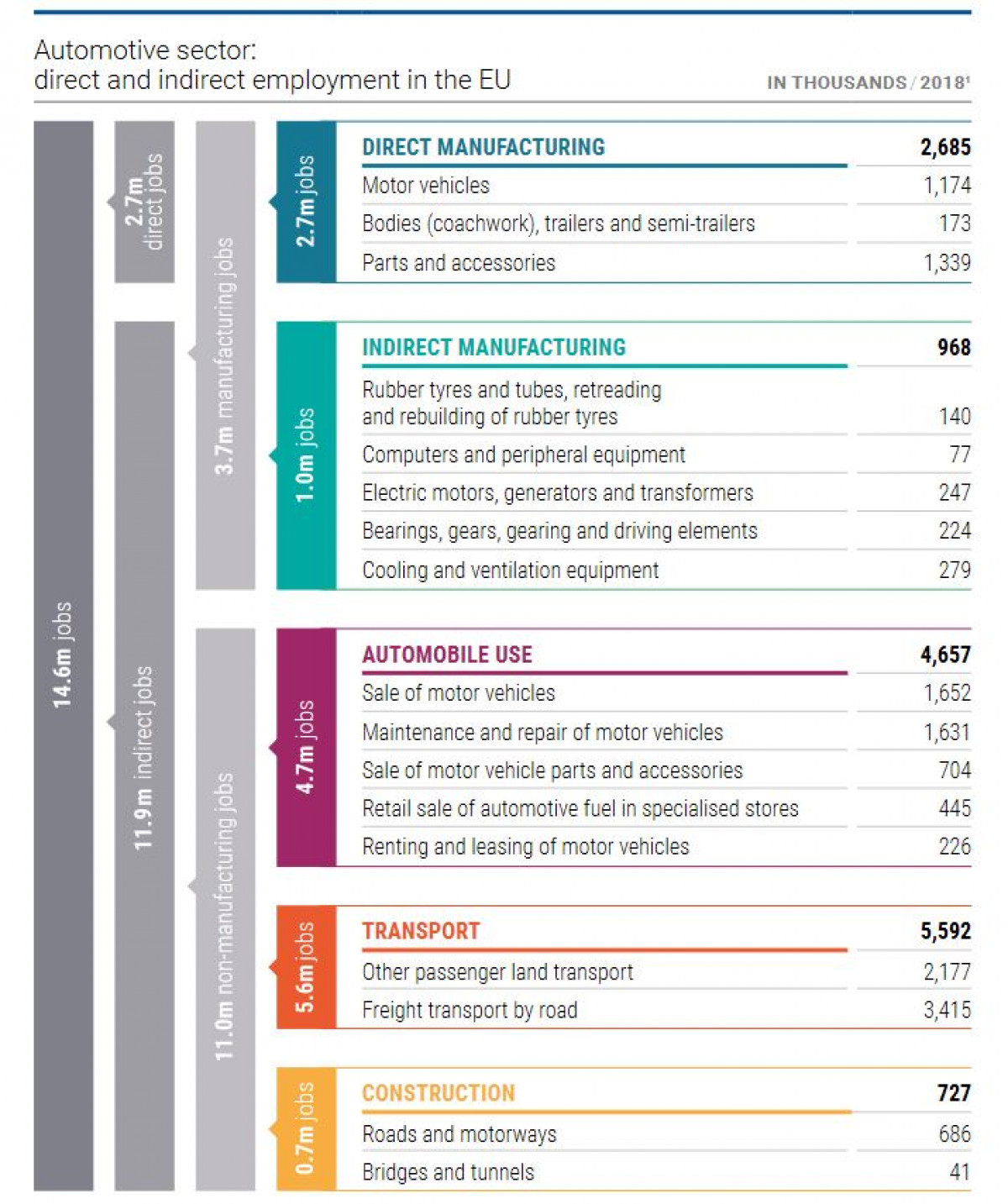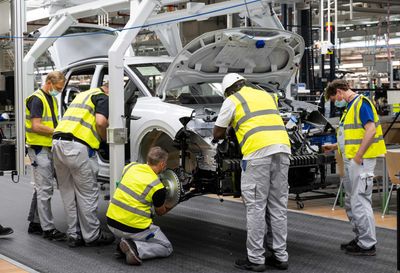The electric car revolution has pulled up to our front door, ringing in a new era of innovation. We’re not just talking about a change in what’s parked in the driveway, but an overhaul impacting industry job markets. From engineers and battery specialists to sales personnel and service technicians, the EV boom echoes far beyond the manufacturing line. Buckle up, folks! We’re journeying into the intricate circuitry of employment systems, where electric vehicles are not only accelerating on roads but also in shaping our professional landscape.
The Rise of Electric Vehicles (EVs)

With the combustion engine’s reign approaching its conclusion, electric vehicles (EVs) are arriving on the global stage with exemplary speed. The EVs’ foray into the mainstream market in the last decade was examined with skepticism, attributable to the limited infrastructure and lack of ‘fueling’ stations. However, the narrative is quickly changing.
Several socio-economic factors have accelerated this change, beginning with the global concern about climate change. The international community’s increasing awareness has pushed the majority of car manufacturers to switch lanes from traditional to electric. Assign that to guilt, or mandate, or natural evolution, this seismic shift is real and irrevocable. Giants like General Motors have committed to produce only zero-emission vehicles by 2035, while Volvo has a similar plan slated for 2030. Tesla’s exponential growth demonstrated how a focused EV player can disrupt the traditional automotive industry.
Moreover, technology advancements have made these cars more efficient and affordable. Range anxiety, an Achilles heel for the EV sector, has been significantly lowered with longer-lasting batteries, wider charging network availability, and faster charging times. The typical electric car can now run hundreds of kilometers on a full charge and, in some cases, even surpass their petrol-powered counterparts.
Financial incentives and supportive governmental policies are also significant contributors to the rise of EVs. Subsidies on electric vehicles and hefty levies on traditional gas guzzlers have made the EVs’ ownership attractive. The EU, obligated to cut its greenhouse emissions by 40% come 2030, has planned significant investments into EV infrastructure, ensuring an electric future. California, the US’s largest car market, has banned the sale of new gas-powered passenger vehicles starting from 2035.
EVs’ proliferation can also be interpreted as a response to broader societal changes. The advent of ride-sharing has nudged people to rethink car ownership entirely. Thus, companies are now not merely selling to consumers, but also to each other. Fleets of electric self-driving taxis are no longer a far-fetched dream.
The gradual integration of EVs into our gateways isn’t just a marginal shift in technology—it marks a societal evolution. And, like any evolution, it comes with a new set of challenges that needs addressing, particularly concerning the job market and employment landscape in the auto industry. Nonetheless, the rise of EVs is an undeniable reality that anyone involved in the global economy should gear up for. The times are indeed electrifying.
How EVs Affect Employment in the Automotive Industry

Electric vehicles (EVs) may seem like the future of the automotive industry, but they also present a rather layered impact on the job market. While creating new employment opportunities in relative sectors, they also have the potential to cause job displacement, especially in traditional automobile and related industries.
By nature, the production of electric vehicles requires less mechanical intricacy compared to their internal combustion engine counterparts; fewer moving parts mean a streamlined assembly process. An ICE vehicle, with its intricate transmission and exhaust systems, takes more human hands, labor, and time to assemble. Cut to an EV, where the simplicity of electric motors drastically reduces the manufacturing time and workforce.
However, this doesn’t mean that EVs will obliterate jobs. It’s more about a shift in job nature and role. Traditional automakers are evolving towards becoming mobility service providers, thereby spawning new positions and generating demand for skills related to technology and digital expertise.
Meanwhile, the EV boom is stirring a beehive of action in secondary sectors. Battery production, charging infrastructure development, and electric grid modernization, are just a few areas upon which EVs are pushing a wave of job creation. Technicians for charging stations, battery engineers, and professionals in renewable energy are witnessing a surge in demand.
In essence, the advent of electric vehicles presents the classic story of technological advancement. As history showed us with steamships, railways, and internet, a technological switch may render some jobs obsolete, but always ends up creating different opportunities – often on a much larger scale. And the EV revolution seems geared up to continue this trend. A restructuring phase is part of the journey, with many roles not disappearing but evolving, requiring upskilling of the workforce.
Ultimately, the effect on employment is not a simple equation. The face of the automotive industry’s job market will no doubt change with the expansion of EVs, the real challenge and opportunity lie in managing this transit well to harness the potential it promises.
Job Opportunities Emerging from the EV Industry

As the electric vehicle (EV) landscape shifts into high gear, an entirely new employment ecosystem is beginning to emerge, an ecosystem fuelled by innovation and the need for efficiency. This isn’t simply a matter of car assembly line workers transitioning to constructing EVs instead of gas-powered vehicles. The EV industry is expected to create new jobs with novel classifications well beyond the walls of the assembly plant.
A good place to begin is with the vehicles themselves. Building an EV requires components that are unique to this industry. The manufacturing of large lithium-ion batteries, for instance, doesn’t appear in the traditional automotive industry. This translates not only into the construction of battery plants, but also into the engagement of engineers, technicians, and supply chain specialists who possess the particular skill set needed for this specialized manufacturing process.
In addition, infrastructure changes will create a ripple effect of job opportunities. The growth of the EV market will necessitate a broader network of charging stations. This could translate into a surge of new jobs for electricians, civil engineers, and infrastructure technicians who will design, build, and maintain these stations.
Now, consider the impending role of renewable energy sources. With an increasing demand for electricity to power these vehicles, opportunities may bloom in the renewable energy sector to ensure an environmentally friendly supply chain. Roles in establishing and maintaining renewable power stations could experience a boom, requiring skills ranging from construction to renewables expertise.
Finally, the software aspect cannot be overlooked. The continual push towards self-driving technology and a greater integration of AI in EVs will put a premium on skills in data analyses, cybersecurity, and software development. Hence, the rise of EVs hints at an accompanying high demand for experts in the tech industry.
On balance, the transition to EVs is poised to offer numerous direct and indirect job opportunities, from manufacturing to technology and infrastructure. As our roads wine and twist toward a more sustainable future, they’ll likely be lined with job opportunities spurred by the EV revolution.
Challenges and Remedies for the Job Market

As a contemplation on the precarious balance between innovation and traditions, there’s a need to delve into the challenges the advent of electric vehicles (EVs) brings to the job market, and more importantly, how to mitigate them.
The most palpable challenge is the likely shift in job specificity. Traditional automakers are entrenched in a system that heavily relies on workers with expertise in internal combustion engine (ICE) cars. As EVs don’t require the intricate piping, radiators, fuel injectors, and many other parts that ICE cars do, there’ll inevitably be a decline in demand for these specific skills. Additionally, the assembly of EVs is less labor-intensive, which could lead to job losses if not gracefully handled.
Another challenge facing the job market is the geographical displacement that could occur. Today, automakers and their corresponding supply chains are strategically located to optimize the production and distribution of ICE vehicles. However, with the paradigm shift to EVs, there may be a need to relocate or establish new plants and factories in more strategically beneficial locations, which could lead to job losses, particularly in regions where automaking is a significant source of employment.
Yet, these challenges, daunting as they are, aren’t insurmountable. There are remedies to these issues and avenues to turn this change into an opportunity.
Adapting the workforce to this change is crucial; targeted training and re-skilling programs will help equip existing employees with the skills needed in the EV industry. Automakers must work together with government agencies and educational institutions, creating programs that train workers in EV technology. This is not only viable but also provides a pathway for workers in ICE vehicle production to transition smoothly into the EV job market.
Reinvestment in manufacturing hubs is another solution. Automakers and policymakers need to collaborate in investing in infrastructure, technology, and manufacturing plants. With proper planning and investment, these manufacturing plants can be retrofitted or repurposed to facilitate EV production, making them the epicenters of EV manufacturing, thereby reducing the threat of geographical displacement.
Lastly, incentives can play an essential role in cushioning the impact of this transition. This could range from financial incentives for EV manufacturers to stimulate job creation or ease the financial burden of re-skilling programs, to job placement programs for affected workers.
In essence, every time there’s a drastic shift in the market, there’s bound to be uncertainty and challenges., but with prudent strategies and proactive measures, these can be transformed into an avenue of opportunity, thereby ensuring that the transition to EVs not only leads to environmental gains but also constitutes a win for the global workforce.
Case Studies: Job Market Transformation Due to EVs

Let’s examine a few key examples to highlight the unfolding transformation in the job market directly related to the surge in electric vehicles.
The first key player in the EV world is the undisputed industry pacesetter: Tesla. Though California-based, Tesla’s influence spans the globe. In 2019, they created over 50,000 jobs worldwide that don’t only encompass assembly line roles but stretch to information technology, software engineering, energy installation, and more. The domino effect reaches the masses: For each direct job at Tesla, five more are created in the broader economy, including in supporting industries such as raw material suppliers and infrastructure providers.
Switching gears slightly, let’s observe the changing landscape in Michigan, a state synonymous with traditional automobiling. With an ambitious plan to become the North American hub for electric vehicles, Michigan has vowed to subsidize major investments in EV manufacturing. This investment plan promises to create jobs not just within the assembly plants but also peripheral ones entailing infrastructure development, battery production, and software programming.
Globally, it’s interesting to observe the paradigm shift in China. Being the biggest market for EVs, they have a revolutionary plan to transform their whole automotive industry. This includes midfield upgrades like battery swap stations, EV charging points, advanced automation, and AI integration into manufacturing processes. Estimates suggest this shift could create around 10 million jobs within the next decade.
Finally, look at one of the newest entrants to the EV market – Rivian. This startup, backed by Amazon and Ford, is expected to create 7,500 jobs by 2024 at their normal, Illinois factory. The recruitment isn’t limited to production roles. They’ve embarked on finding talent for their expanding software engineering and autonomous vehicle departments – indicative of the new job areas sprouting in this industry.
These cases, albeit brief, are illustrative of how electric vehicles are fueling job market transformation. From the assembly lines of auto factories to the cutting-edge realms of AI and software engineering, EVs are driving a significant shift in the employment landscape. The ripple effects of this change go far beyond the automotive sector, touching everything from transport infrastructure to the tech industry and the energy sector. This is the new motor of progress for job markets worldwide, and it’s only picking up speed.
FAQs
How are EVs impacting the job market?
Ah, the grand world of EVs! Well my friend, one thing’s for certain – they’re charging up the job market quite handsomely, pun absolutely intended. Did you know that the EV sector itself created about 119,000 direct jobs and 158,000 indirect jobs in the US in 2019? And that’s simply a ‘spark’ of what’s coming. With the rise of EV giants like Tesla, we’re going to be seeing huge growth in software development, manufacturing, sales, charging infrastructure development…and I haven’t even touched on recycling and disposing EV batteries yet! So gear up, fantastic times are ahead.
Will the rise of Electric Vehicles mean job losses for mechanics?
Interesting point! EVs come with fewer moving parts, which technically could result in less wear and tear…or so you’d think. But fret not! EVs aren’t going to downsize all those mechanics into hobbyists. Think about it – these smart, high-tech, potential spaceship relatives are full of new technologies and systems that someone will have to maintain. And guess who that will be? Yep, mechanics. Only this time, they’ll be techs with fancy EV lingo in their vocabulary and a whole new world of expertise to prove their mettle.
Are more jobs being created in traditional automotive or EV sector?
Hold your horses, I have a spectacular stat up my sleeve. By 2024, the EV industry is expected to employ over 300,000 workers in the U.S, nearly triple the 108,000 jobs that existed in 2019. The sheer acceleration, or should I say ‘EV-celeration’, in job growth is far outstripping the traditional automotive industry. So if you’re strapping on your career helmet, make sure to have your EV visors on!
Conclusion
Overall, the rise of electric vehicles signals a paradigm shift in the job market that comes with both exciting opportunities and challenging adjustments. Indeed, while some traditional automotive jobs may sunset, new roles — from battery technology to charging infrastructure — will emerge. It’s an exciting road ahead, but it’s crucial to facilitate a smooth transition for those impacted workers, aligning skills with new jobs while ensuring the benefits of EVs are shared equitably across the economy.
